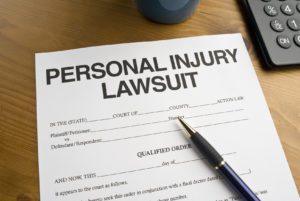
Evidence can make or break a personal injury case. Personal injury cases can range from car accident matters to complex medical malpractice cases and wrongful death. Regardless of the nature of your case, evidence is one of the most important factors in your claim’s success.
Personal injury cases have strict legal requirements, so if you’ve been injured in an accident, seek advice from a reputable Boston personal injury lawyer. They can help you understand your rights and what evidence they need for your case. This overview gives you a general idea of what type of evidence is used in personal injury cases.

A personal injury case is a lawsuit that allows victims injured in accidents to seek compensation for damages. Cases are usually based on a negligence, which is basically a legal theory that imposes financial liability on a party due to careless behavior that causes an accident.
Individuals harmed in accidents due to negligence may be able to recover money for medical bills, lost wages, and pain and suffering.
While you may know the facts of your case, such as who was involved, what occurred, how it occurred, and how it has affected you. However, you need evidence to help elevate your claims from allegations to proveable facts.
Without evidence, personal injury claims often devolve into he-said-she-said situations, where the court is forced to judge the credibility of two competing versions of the same account. Even if you are a convincing, stellar witness, evidence will help legitimize your claims and maximize your chance at recovery.
The type of evidence required for your case often depends on the type of case it is. Some of the most common forms of evidence that come into play for certain cases are below.
If you’re a driver in Boston, you’ve seen your fair share of accidents. Maybe you’ve been in one. Car accidents vary from minor fender benders to multi-car collisions.
If a car accident prompts emergency responders and police to attend to the scene, there will be reports generated by these personnel. These reports will be extremely important for a personal injury claim.
Accident reports are are unbiased since they are created by individuals who have no stake in the case. Therefore, they will hold a lot of credibility in supporting a claim. You are permitted to obtain copies of this report, which can often be obtained online or by calling the office that generated the report.
Photographs and video can be extremely convincing pieces of evidence. They can tell the story of what happened in your case like no other piece of evidence can. It lets the judge and/or jury evaluate something with their own eyes. It takes them out of the courtroom and into the scene of your injury, giving your facts more color and weight.
Sometimes vidoes may outright prove your case. For example, if you are in a grocery store and slip on an un-mopped puddle of liquid, and you have sustained injury, you may have a valid slip and fall case.
If there’s video evidence of your fall that also documents how long that puddle was there. It may even show workers ignoring or otherwise failing to address the hazard. This video evidence would be extremely compelling in helping you prove your case and get the recovery you deserve.
Similarly, photographs help elevate your claim. If you are aware of any source of photographs, including photos taken by witnesses to the injury, those should be obtained as soon as possible.
Medical records are critical in any personal injury case. They can be used to show the extent of your injuries. In medical malpractice cases, medical and billing records may be used to a larger extent than in any other injury case.
Medical malpractice cases are often hard to prove. The defendant physician or hospital has the backing of an insurance company and defense attorney who will do everything they can to attack your personal injury claim.
Obtaining a full and accurate set of your medical records is essential in proving a medical malpractice case. You have the right to request your own medical records at any time, including all physician orders, prescriptions, imaging, doctors’ notes, and more.
Similarly, billing records are important in that they provide direct proof of your medical costs, which may be recoverable in a lawsuit. Both billing and medical records have become voluminous and complex over the years. Only experienced personal injury attorneys with medical malpractice experience have the expertise to navigate these records and fully support your case.
There is no limit to the amount or type of evidence that may support your claim. Everything from employment records and witness statements to journals, diaries, and notes could be relevant to your claim. An attorney can help you find out what you need, how to get it, and how to get it done quickly. In Massachusetts, you typically have three years to file your personal injury claim. This may seem like a lot of time, but over time, evidence can be harder to obtain or may outright disappear. If you’ve been injured in an accident in Boston, MA, contact an experienced Boston personal injury attorney sooner rather than later at (617)-391-9001. Most offer free consultations to give you a chance to let them evaluate your case with no risk and no obligation.